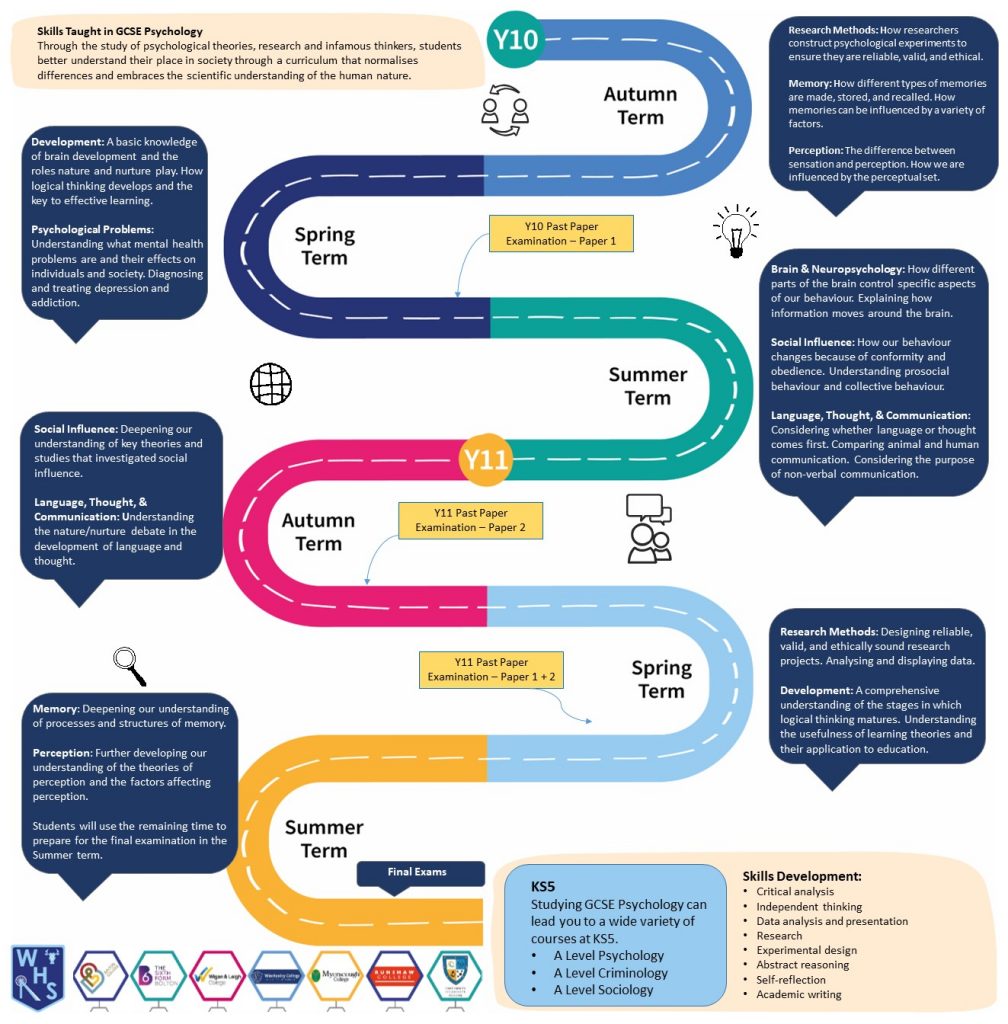As a school we believe in the power of the psychological curriculum to create self-awareness in our learners, creating an understanding of themselves whilst also increasing their ability to understand others. Through the study of psychological theories, research and infamous thinkers, we believe students understand their place in society to a greater extent through a curriculum that normalises differences and embraces the scientific understanding of the human nature. Within Psychology, students study the processes of learning and memory. This knowledge benefits them in all subjects and sets them up as successful life long learners.
We intend, that through the study of Psychology, our students will aim high and grow in critical thinking, analysis and an understanding of how information is generated in society, questioning ethics, validity and reliability.
We wish our students to understand the contribution of Psychology to individual, social and cultural diversity, understanding the relationship between Psychology and personal, moral, social and cultural issues, developing our students’ own ethical principles in order to become respectful reflective thinkers who can develop arguments and draw conclusions in a critical and scientific manner.
Please see parental overview of the course in KS4 below:
Links for Support/Help at Home
- Seneca Learning
- Accessing https://learnorg/gcse/aqa-psychology
- Support P6 attendance
- Supporting home learning and cue card making/testing


